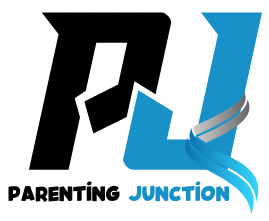Proper nutrition is fundamental for children’s healthy growth and development. Among the many nutrients, vitamins and minerals play a vital role in supporting physical growth, cognitive development, immune strength, and overall well-being.
This article explores the most important vitamins and minerals for kids, their functions, food sources, and how parents can ensure their children get enough of these essential nutrients.
Why Vitamins and Minerals Matter for Kids
While macronutrients (carbs, protein, fat) provide energy, micronutrients like vitamins and minerals support thousands of bodily functions, including:
- Bone and teeth development
- Immune system health
- Brain and nervous system growth
- Blood formation and oxygen transport
- Wound healing and cellular repair
Key Vitamins and Minerals for Children
- Vitamin A
- Role: Supports vision, immune function, and skin health.
- Sources: Carrots, sweet potatoes, spinach, kale, eggs, dairy.
- Vitamin C
- Role: Helps heal wounds, boosts immunity, and aids iron absorption.
- Sources: Citrus fruits, strawberries, bell peppers, broccoli, tomatoes.
- Vitamin D
- Role: Crucial for calcium absorption and bone development.
- Sources: Fortified milk, egg yolks, fatty fish; also produced by skin exposure to sunlight.
- Calcium
- Role: Builds strong bones and teeth, supports muscle function.
- Sources: Milk, yogurt, cheese, leafy green vegetables, fortified plant-based milk.
- Iron
- Role: Essential for red blood cell production and oxygen transport.
- Sources: Lean meats, beans, lentils, spinach, fortified cereals.
- Zinc
- Role: Supports immune health and wound healing.
- Sources: Meat, dairy, nuts, seeds, whole grains.
- B Vitamins (B6, B12, Folate)
- Role: Aid energy metabolism, brain development, and red blood cell production.
- Sources: Meat, poultry, fish, eggs, dairy, leafy greens, beans.
How to Ensure Adequate Intake of Vitamins and Mineral

Source: https://www.gigadocs.com/blog/tag/diet-plan-for-children/
Balanced Diet
The best way to provide vitamins and minerals is through a varied, balanced diet rich in fruits, vegetables, whole grains, lean proteins, and dairy.
Encourage Diverse Foods
Offer a wide range of colorful fruits and vegetables to cover different nutrient needs.
Fortified Foods
Use fortified cereals, breads, and dairy alternatives when necessary to boost nutrient intake.
Supplements
In some cases, pediatricians may recommend vitamin supplements, especially for picky eaters or children with dietary restrictions.
Signs of Vitamin and Mineral Deficiencies in Children
- Fatigue or weakness
- Poor growth or delayed development
- Frequent infections or illnesses
- Pale skin or easy bruising
- Behavioral issues or difficulty concentrating
If you notice any of these signs, consult your child’s healthcare provider for evaluation.

Source: https://www.todaysparent.com/baby/baby-development/role-of-vitamins-and-minerals/
Tips for Parents to Boost Kids’ Vitamin and Mineral Intake
- Include at least 5 servings of fruits and vegetables daily.
- Serve calcium-rich dairy or alternatives with meals.
- Offer iron-rich foods with vitamin C sources to enhance absorption.
- Cook vegetables lightly to preserve vitamins.
- Limit sugary and processed foods that offer little nutritional value.
Sample Daily Meal Plan for Vitamins and Minerals
| Meal | Foods to Include |
| Breakfast | Fortified cereal with milk and orange slices |
| Snack | Yogurt with strawberries |
| Lunch | Turkey sandwich on whole grain bread, carrot sticks |
| Snack | Apple slices with peanut butter |
| Dinner | Grilled salmon, quinoa, steamed broccoli |
Conclusion
Vitamins and minerals are essential building blocks for your child’s growth, development, and health. A nutrient-rich diet with diverse whole foods helps prevent deficiencies and supports lifelong wellness.
By understanding the role of key nutrients and incorporating vitamin- and mineral-rich foods into daily meals, parents can nurture their children’s bodies and minds for a healthy future.





